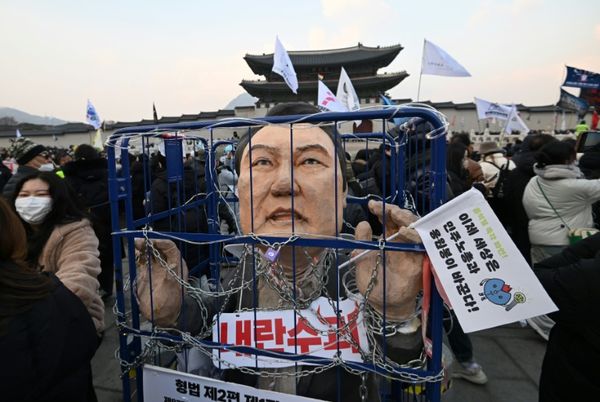
A bankruptcy filing gives a company protection and a chance to reorganize its finances. It essentially pauses its debts and allows the brand to seek out deals with its creditors, new funding, or maybe even another company to swoop in and buy its assets.
That's what happened with David's Bridal. The popular wedding dress chain was rescued at the last minute when Cion Investment Corp. stepped in to acquire the brand. While the terms of that deal were not disclosed, it rescued all of the chain's 195 stores and saved most of its employees' jobs.
Related: Beloved mall retailer files Chapter 7 bankruptcy, will liquidate
In the case of David's Bridal, the bankruptcy court likely weighed the impact a Chapter 11 bankruptcy filing would have on customers. Thousands of women would have likely not received their wedding dresses that they had already paid for.
Without the ability to file Chapter 11 bankruptcy, David's Bridal, and countless other brands that managed to reorganize and survive would have died. In the case of the wedding retailer, it needed the pause in order to fix its finances and find an owner that could afford to pay its bills.
Without that protection, the company would have almost certainly gone under.

Image source: Vlad Teodor/Shutterstock
Boston Market has struggled
Boston Market essentially created the rotisserie chicken as a fast-food/fast casual staple. It was a pioneer in offering higher-end, better-for-you comfort meals as an alternative to McDonald's (MCD) , Burger King, and other fast-food chains.
"Our mission is to create awesome rotisserie meals. We started our restaurant revolution with just three ingredients: fire, a spit, and chicken. No one does chicken like we do. But chicken isn’t the only thing that hits our rotisserie oven— we utilize the same tried and true techniques on our prime rib. Get hungry for rotisserie perfection," the chain shared on its website.
The chain, which used to count McDonald's as a part owner is now owned by Jignesh "Jay" Pandya.
Boston Market has faced some huge financial woes in recent years and had its headquarters seized in May 2022 by the Colorado Department of Revenue over $329,00 in unpaid sales and payroll taxes. The chain has also been quickly shrinking as all of its Florida and Connecticut locations abruptly shut down in late 2023.
The chain also owed US Foods, its key food vendor $11 million and it faces over 140 lawsuits in a variety of state and federal courts over everything from unpaid wages to overdue rent, and vendors who have not been paid.
"In a bold departure from conventional franchise models, the BMC program unfolds as a new window of opportunity, inviting passionate individuals to become an operating owner/partner of a Boston Market location without any buy-in requirements," the company shared in a press release.
Basically, the rotisserie chain wants existing operators — perhaps convenience store owners or people who own pizza places or other non-franchised eateries — to add Boston Market's menu to their locations.
Pandya, without commenting on his bankruptcy, made bold promises for the new franchising plan.
"The Boston Market name stands for itself, and it is well known throughout the country," said Pandya. "Now, with everyone's support we will be able to provide our famous rotisserie chicken and delicious, homemade sides and family meals to everyone. We encourage anyone with a location and a desire to add Boston Market virtually to reach out and partner with us."
Boston Market owner denied bankruptcy protection
Pandaya has twice filed for personal Chapter 11 bankruptcy and has been twice denied by the courts. When his latest filing was denied, the court actually banned him from filing again for six months.
That casts the future of the chain into doubt.
"It appears unlikely Boston Market will have the finances to stay afloat or grow," RetailDive shared.
Boston Market has been ordered to pay $12 million to US Foods.
The chain did recently share a plan that allows new franchisees to open a Boston Market without any buy-in requirements.
ALSO READ: Walmart and Target make key self-checkout changes to fight theft
"Rooted in the ethos of community, the Boston Market Connect program presents aspiring owners with the opportunity to not just run a Boston Market restaurant but to forge it into a cornerstone of their community. The company feels this program, laden with historic significance, is set to become a transformative force, paving the way for entrepreneurs to inscribe their names in the records of the Boston Market legacy," the chain shared on its website.







